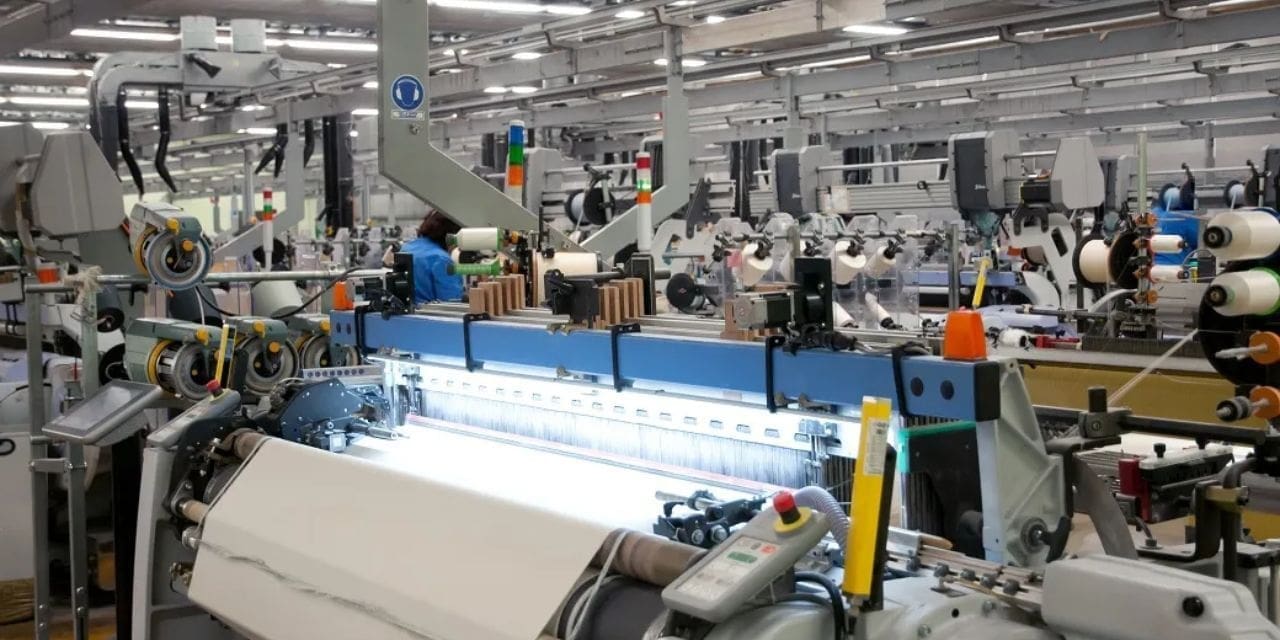The RPM requirement for weaving machine exemption from Basic Custom Duty (BCD) has drawn criticism from organisations in the Indian textile sector. The exemption was extended by the Indian ministry of finance for an additional two years, from April 1, 2023, to March 31, 2025. Importers must pay duty due to the new condition specified in the notification, though. The industry is requesting that the notification be changed to reflect Weft Insertion Rate (WIR), which they claim to be a more precise technical requirement, in place of the RPM criteria.
A minimum RPM of 650 is required for shuttleless Rapier looms in order to qualify for BCD exemption, according to the letter sent out on March 29, 2023. The shuttle-free Waterjet looms’ For Airjet looms, the lowest RPM is 800, while the maximum RPM is 1,000.
The state minister for textiles, Darshana Jardosh, has received a letter from the South Gujarat Chamber of Commerce and Industry (SGCCI) inquiring about the situation. Leading international weaving machine manufacturers from Europe and Japan are mentioned in the letter as having stated that, in contrast to the requirements of the notification, the RPM of machines does not define their efficiency. They contend that, if necessary, Weft Insertion Rate (WIR) should serve as the basis for the proper technical requirements.
According to the SGCCI, domestic organisations hold comparable views. The textile commissioner’s office circular states that machines compatible with Amended Technology Upgradation Fund Scheme (ATUFS) employ WIR as well. According to Ahmedabad Textile Industry’s Research Association (ATIRA), the explanation of weaving apparatus. The efficiency of weaving machines like Rapier Looms, Projectile Looms, and Airjet looms is measured in WIR, which is expressed in Metres per Minute (MPM), according to top global producers of weaving machines like European manufacturers Picanol and ITEMA and Japanese company Toyota.
SGCCI President Himanshu Bodawala wrote a letter indicating that representatives from the industry had contacted the ministry of finance to ask for a modification to the notification about the proper definition for BCD exemption on the import of weaving equipment. According to information provided by ministry representatives, the Tax Research Unit (TRU) of the ministry of finance shall receive any requests for amendments from the ministry of textile. Consequently, the ministry of textile must send the ministry of finance its suggestion.
According to Ashish Gujarati, the SGCCI’s recent past president, “The Ministry of Textile has called a meeting on this matter on May 10, 2023. In the notification extending the BCD exemption for the following two years, the ministry of finance introduced this requirement. Shuttleless Weaving machineries for rapier looms are produced at 220 RPM. No machine in the world is produced with 650 RMP. Such circumstances weren’t present earlier. BCD is suitable since all domestic and foreign machines have an RPM lower than 650.
The BCD that weaving companies had to pay for importing such machines is estimated by the industry to have cost them 150 crore rupees. Importers will carry on doing till the notification is changed, pay BCD. According to certain industry sources, the restriction was included to prevent the import of weaving machinery. However, the textile sector views imported machinery as being more effective than domestically produced equipment.

